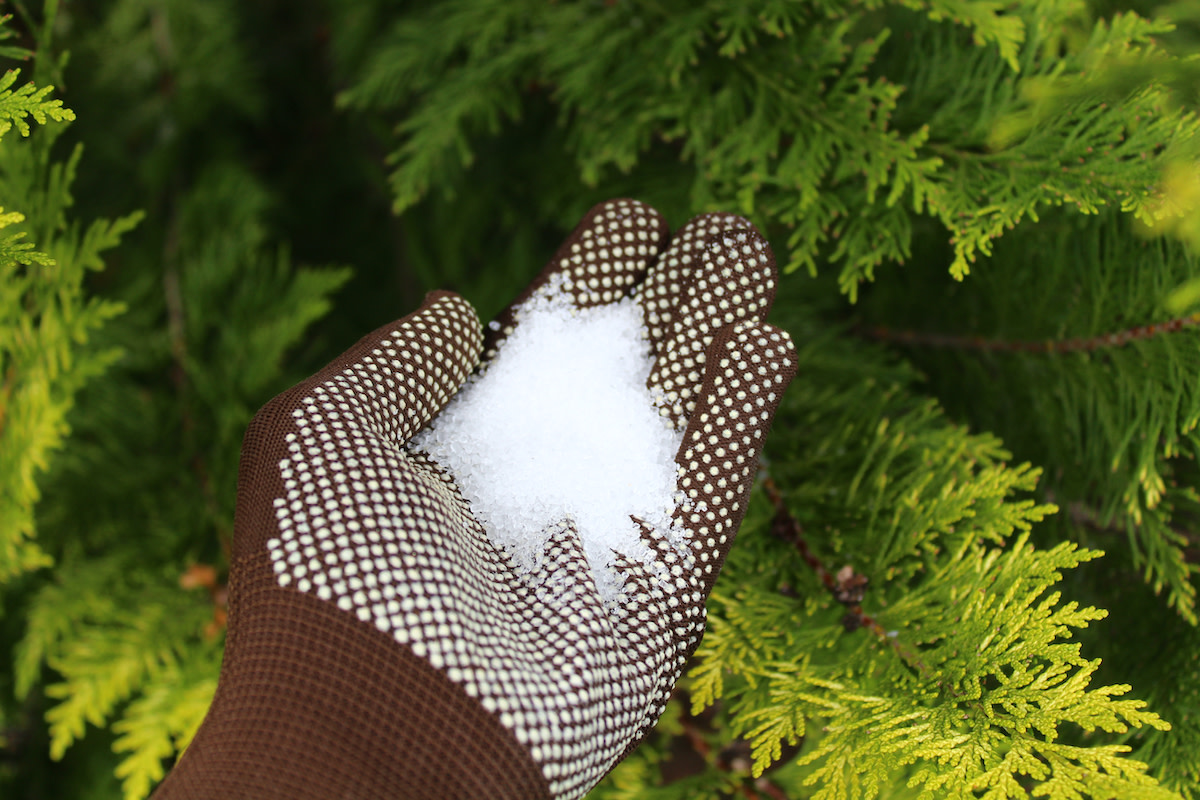Epsom Salt in Garden: 4 Ways Plants Benefit From Epsom Salt
Written by MasterClass
Last updated: Aug 27, 2021 • 3 min read
Epsom salt, which is high in the mineral magnesium, can help plants in a vegetable garden produce larger, more flavorful fruits and vegetables.
Learn From the Best
What Are Epsom Salts?
Epsom salt (sometimes referred to as Epsom salts) is the common name for magnesium sulfate. It’s a natural mineral containing magnesium, sulfur, and oxygen. Its name comes from the town of Epsom, England, where physician Nehemiah Grew discovered the salts in the springs in the seventeenth century.
People often use Epsom salts as a foot soak or a body soak to treat muscle aches or reduce swelling; however, scientists have not conclusively proven these and many other purported benefits of Epsom salts. In gardening, Epsom salt can work as a plant fertilizer for garden plants and houseplants and can reverse a magnesium deficiency in the soil.
4 Benefits of Using Epsom Salt in the Garden
If you add it to your soil properly, Epsom salt can help your garden plants thrive because it increases levels of magnesium, one of the vital nutrients in garden soil. Here are some of the advantages to using Epsom salts in your yard or garden:
- 1. Encouraged growth: Magnesium is essential for plants because it increases chlorophyll production. Chlorophyll creates green color in the plant's leaves and assists in plant growth. A boost of magnesium encourages seed germination and fast growth by strengthening plants’ cell walls.
- 2. Root shock prevention: When you’re transplanting seedlings or full-grown plants, roots can become stressed, causing them to stop growing. Known as root shock (or transplant shock), your plants may wilt or have yellowing leaves, among other signs. Epsom salt can prevent root shock by increasing chlorophyll production and helping the roots absorb more nutrients.
- 3. Improved flavor: The more chlorophyll a plant produces, the more sugar it produces, which results in sweeter and more flavorful fruits and vegetables.
- 4. Pest control: To deter bugs like beetles, mix one cup of Epsom salt with five gallons of water, add the mixture to a spray bottle, and apply it to leaves. To control slugs, sprinkle the dry salt around the base of the plant.
3 Plants That Benefit From Epsom Salt
Epsom salt, also known as magnesium sulfate, can benefit plants that require more magnesium or sulfur than others, including:
- 1. Pepper plants: Peppers need extra magnesium, especially if you grow them in pots. The combination of magnesium and sulfur boost pepper growth.
- 2. Roses: Rose bushes benefit from the magnesium in Epsom salt. To encourage lush green leaves and fuller blooms, drench the soil with an Epsom salt solution. Avoid spraying the leaves, as too much leaf contact with the salt can cause the leaves to burn in the sun.
- 3. Tomato plants: While some Epsom salt can benefit vegetables and can help increase the flavor profile, too much can lead to blossom end rot. That’s because tomato plants need calcium, and too much salt will force the roots to uptake the magnesium instead of the calcium in the soil.
How to Use Epsom Salt in the Garden
Adding Epsom salt to your garden can help your plants. Follow these steps to mix it into your soil properly:
- Perform a soil test. Determine whether your soil is magnesium deficient by performing a soil test. If it is, you can use Epsom salt. If your garden soil has other issues or suffers from a different nutrient deficiency, consult a specialist to determine if you need a complete fertilizer (one that contains nitrogen, phosphorus, and potassium).
- Combine the salt with water. Dilute the Epsom salts with water. Use two tablespoons of Epsom salt per gallon of water if you plan to water the soil. Or use one tablespoon of Epsom salt per gallon if you plan to add the mixture to a sprayer.
- Water your soil or your plants directly. Use your Epsom salt mixture to water the soil at the base of the plant, or add the mixture to a foliar spray—a spray that lets plants absorb the nutrients directly through their leaves instead of their roots.
Learn More
Grow your own garden with Ron Finley, the self-described "Gangster Gardener." Get the MasterClass Annual Membership and learn how to cultivate fresh herbs and vegetables, keep your house plants alive, and use compost to make your community—and the world—a better place.
